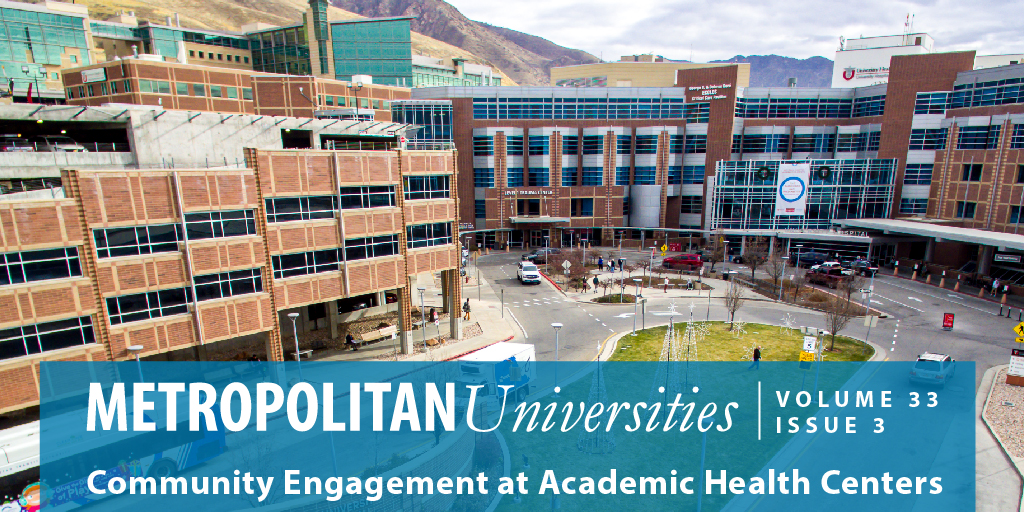Establishing Principles for Community-Based Research
Story & Power in the Community Research Collaborative
DOI:
https://doi.org/10.18060/25819Keywords:
Community-Based Research, Counterstories, Research Ethics, Campus-Community Partnerships, Community EngagementAbstract
Academic health centers and their universities are increasingly encouraged to engage in more community-based and participatory approaches to research. Yet, traditional ethics guidelines and regulations are inadequate for addressing the dynamics of community-campus research partnerships. In this article, the authors share stories from the Community Research Collaborative (CRC), a collective of community leaders and faculty that published guidelines for community-based research (CBR). The CRC offers a case study in how a collaborative process of developing CBR guidelines can create space for partners to wrestle with the historical and present-day harms carried out in indigenous and minoritized communities in the name of science and to imagine alternative ways of working together collectively. This case study highlights the complex power dynamics inherent in community-campus partnerships and how storytelling can play a role in unearthing and addressing them. It positions the work of the CRC as incomplete and evolving while offering a foundation on which other institutions could carry out similar processes in their localities.
References
Antonio, A. L. (2002). Faculty of color reconsidered: Reassessing contributions to scholarship. The Journal of Higher Education 73(5), 582-602. https://doi.org/10.1080/00221546.2002.11777169
Bang, M., & Vossoughi, S. (2016). Participatory design research and educational justice: Studying learning and relations within social change making. Cognition and Instruction, 34(3), 173-193, https://doi.org/10.1080/07370008.2016.1181879
Carty, D., Israel, B., Sand, S., Schulz, A., Stokes, C., & Perkins, D. (2008). What is meant by community representation in CBPR? Lessons from the Healthy Environments Partnership. Paper presented at the 136th APHA Annual Meeting and Exposition.
Community Alliance for Research and Engagement. (2013). Beyond Scientific Publication: Strategies for Disseminating Research Findings.
Community Research Collaborative (2007). Guidelines for Community-Based Research. Salt Lake City, UT: University Neighborhood Partners.
Community Research Collaborative. (2021). In it together: Community-based research guidelines for communities and higher education. Salt Lake City, UT: University Neighborhood Partners. Retrieved from https://d2vxd53ymoe6ju.cloudfront.net/wp-content/uploads/sites/21/2021/05/12143439/CRC-Guidelines-May-12-2021.pdf
Dostilio, L. (2019). Building Community Capacity via Place-Based Hyperlocal Engagement: A Report from the Field. Towson, MD: Coalition of Urban and Metropolitan Universities.
Dotson, K. (2011). Tracking epistemic violence, tracking practices of silencing. Hypatia, 26(2), 236-257. https://doi.org/10.1111/j.1527-2001.2011.01177.x
Dutta, U., Azad, A. K., & Hussain, S. M. (2021). Counterstorytelling as epistemic justice: Decolonial community‐based praxis from the global south. American Journal of Community Psychology. https://doi.org/10.1002/ajcp.12545
Finkelstein, M. J., Conley, V. M., & Schuster, J. H. (2016). Taking the measure of faculty diversity. New York: TIAA
Hezel, F. X. (1995) Strangers in Their Own Land: A Century of Colonial Rule in the Caroline and Marshall Islands. [Pacific Islands Monograph Series, No. 13.] Honolulu: University of Hawaii Press.
Hirabayashi, L. R. (1995). Back to the future: Re-framing community-based research. Amerasia Journal, 21(1-2), 103-118.
Hodges, R. A., & Dubb, S. (2012). The road half traveled: University engagement at a crossroads. Lansing, MI: Michigan State University Press.
Gordin, M. D. (2015). Scientific babel. University of Chicago Press.
PBS Hawai’i. (2017, July 13). Insights on PBS Hawai’i Giving A Damn. Retrieved from https://www.pbshawaii.org/insights-on-pbs-hawaii-giving-a-damn/
Sacks, O. (1997). The island of the colorblind. New York: Vintage.
Smith, L. T. (1999). Decolonizing methodologies: Research and indigenous peoples. London: Zed Books Ltd.
Teufel-Shone, N. I. (2011). Community-based participatory research and the academic system of rewards. AMA Journal of Ethics, 13(2), 118-123. doi: 10.1001/virtualmentor.2011.13.2.pfor1-1102
Vakil, S., McKinney de Royston, M., Suad Nasir, N. I., & Kirshner, B. (2016). Rethinking race and power in design-based research: Reflections from the field. Cognition and Instruction, 34(3), 194-209. https://doi.org/10.1080/07370008.2016.1169817
Welch, M. (2016). Engaging higher education: Purpose, platforms, and programs for community engagement. Sterling, VA: Stylus Publishing.
Vitale, K., Newton, G. L., Abraido-Lanza, A. F., Aguirre, A. N., Ahmed, S., Esmond, S. L., Evans, J., Gelmon, S. B., Hart, C., Hndricks, D., McClinton-Brown, R., Young, S. N., Stewart, M. K., & Tumiel-Berhalter, L. M. (2018). Community engagement in academic health centers: A model for capturing and advancing our successes. Journal of community engagement and scholarship, 10(1), 81-90.
Wilkins, C. H., & Alberti, P. M. (2019). Shifting academic health centers from a culture of community service to community engagement and integration. Academic medicine: journal of the Association of American Medical Colleges, 94(6), 763-767. doi:10.1097/ACM.0000000000002711
Downloads
Published
Issue
Section
License
Copyright (c) 2022 Paul Kuttner, Ana Antunes, Adrienne Cachelin, Laneta Fitisemanu, Melsihna Folau, Sara Hart, Anahy Salcedo

This work is licensed under a Creative Commons Attribution 4.0 International License.



